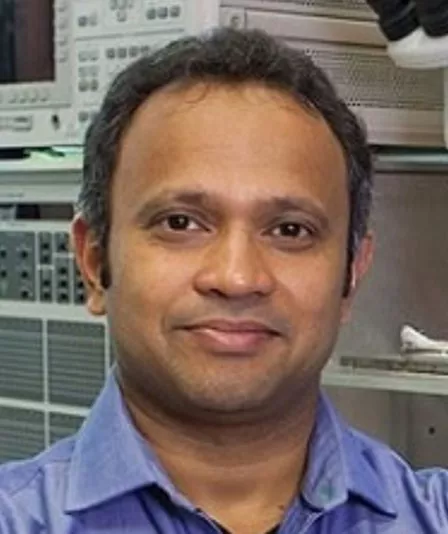Abstract: Brain-inspired Computing using Phase Change Memory Devices by Abu Sebastian, IBM Research, Zurich
Dr. Abu Sebastian, IBM Research – Zurich, Zwitzerland
Nanoscience Colloquium entitled "Brain-inspired Computing using Phase Change Memory Devices"
Abstract: There is a significant need to build efficient non-von Neumann computing systems for highly data-centric artificial intelligence related applications. Brain-inspired computing is one such approach that shows significant promise. Memory is expected to play a key role in this form of computing and in particular, phase-change memory (PCM), arguably the most advanced emerging non-volatile memory technology. Brain-inspired computing is likely to be realized in multiple levels of inspiration given a lack of comprehensive understanding of the working principles of the brain. As the first level of inspiration, one could build computing units where memory and processing co-exist in some form. Computational memory is an example where the physical attributes and state dynamics of memory devices are exploited to perform certain computational tasks in place with very high areal and energy efficiency. In a second level of brain-inspired computing using PCM devices, one could design a co-processor comprising multiple cross-bar arrays of PCM devices to accelerate inference and training of deep neural networks. PCM technology could also play a key role in the space of specialized computing substrates for spiking neural networks and this can be viewed as the third level of brain-inspired computing using these devices.
Short Bio: Abu Sebastian is a Principal Research Staff Member and Master Inventor at IBM Research – Zurich. He was a contributor to several key projects in the space of storage and memory technologies and currently leads the research effort on in-memory computing at IBM Zurich. Dr. Sebastian is a co-recipient of the 2009 IEEE Control Systems Technology Award and the 2009 IEEE Transactions on Control Systems Technology Outstanding Paper Award. In 2015 he was awarded the European Research Council (ERC) consolidator grant and in 2019, he received the Ovshinsky Lectureship Award for his work on phase change materials for cognitive computing.
Contact Information: ase [at] zurich [dot] ibm [dot] com


